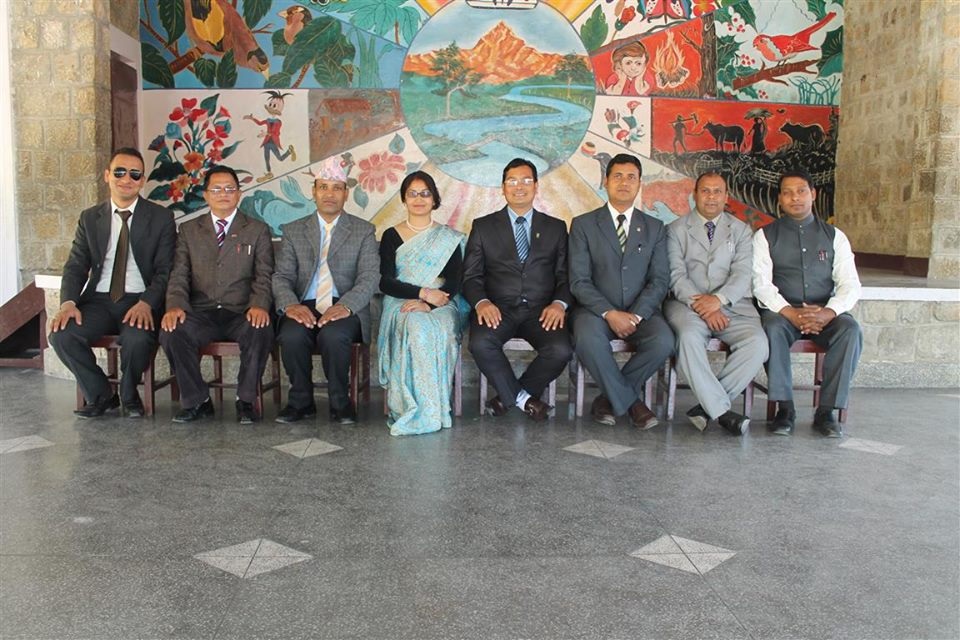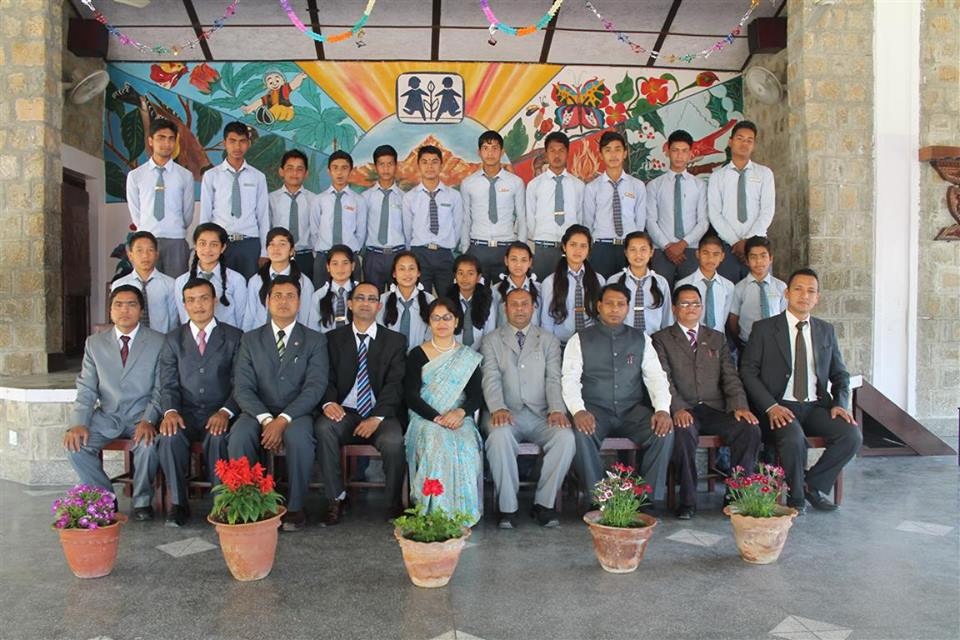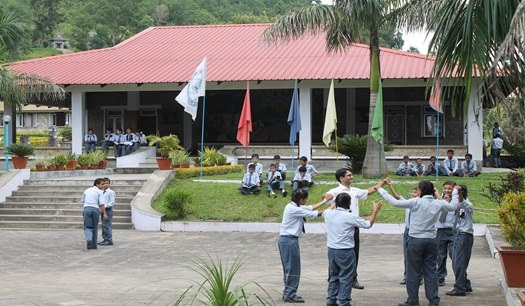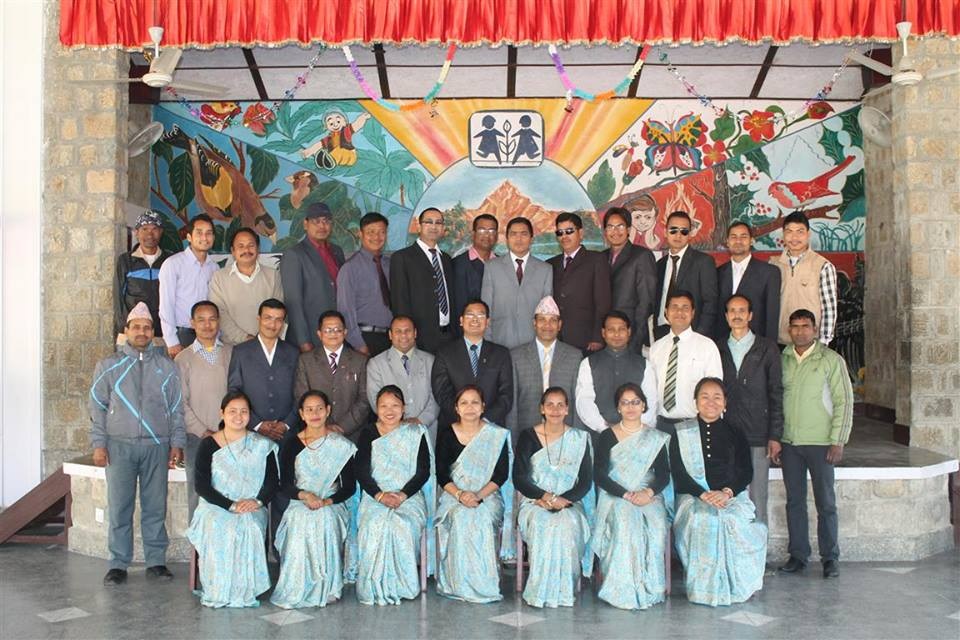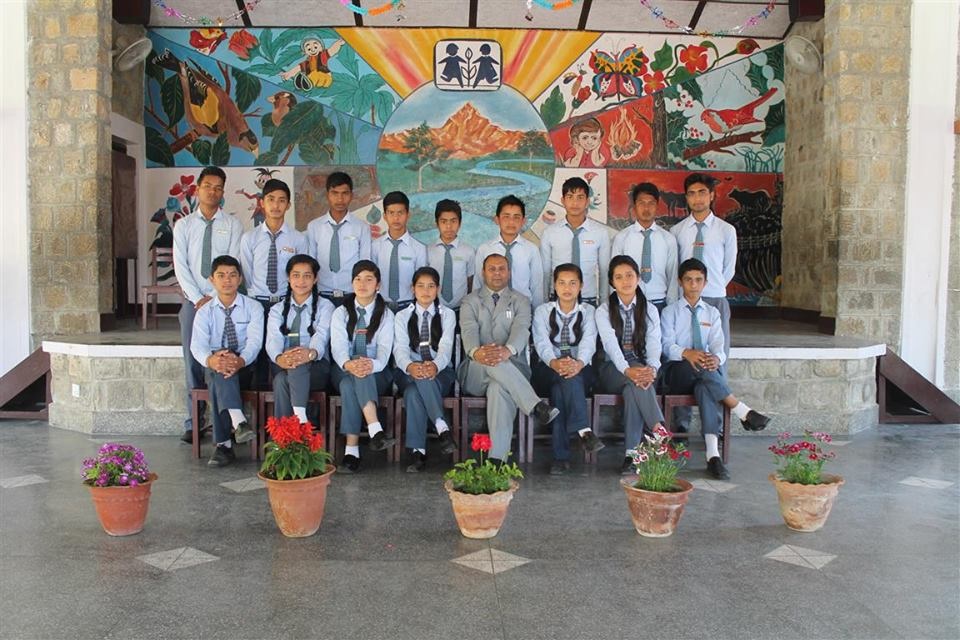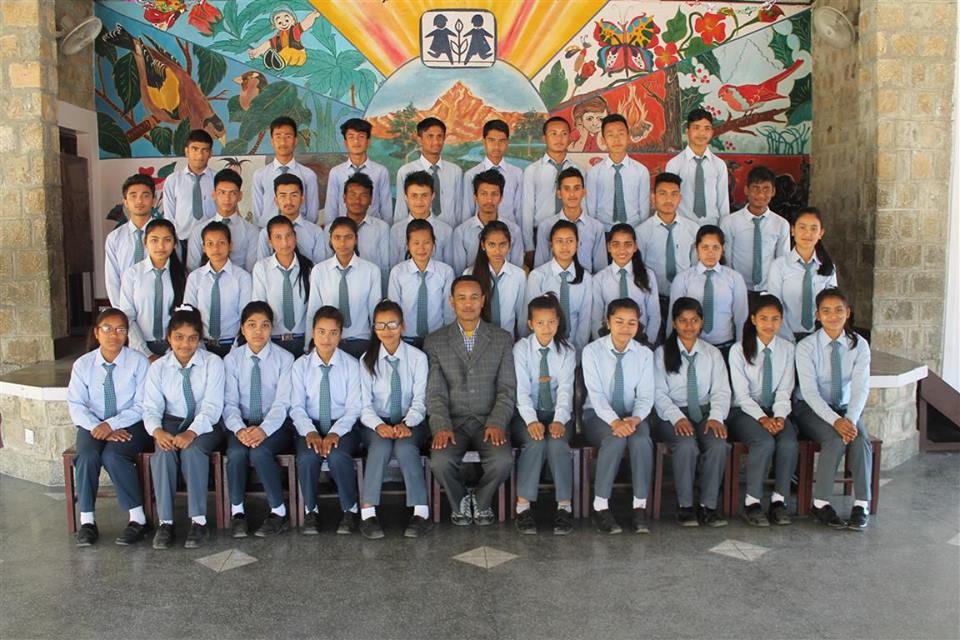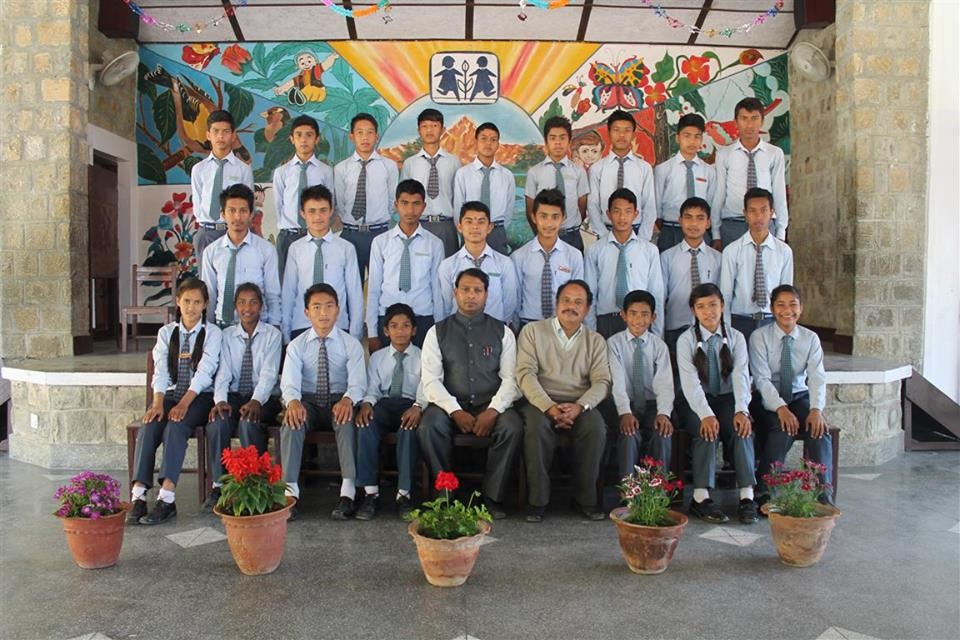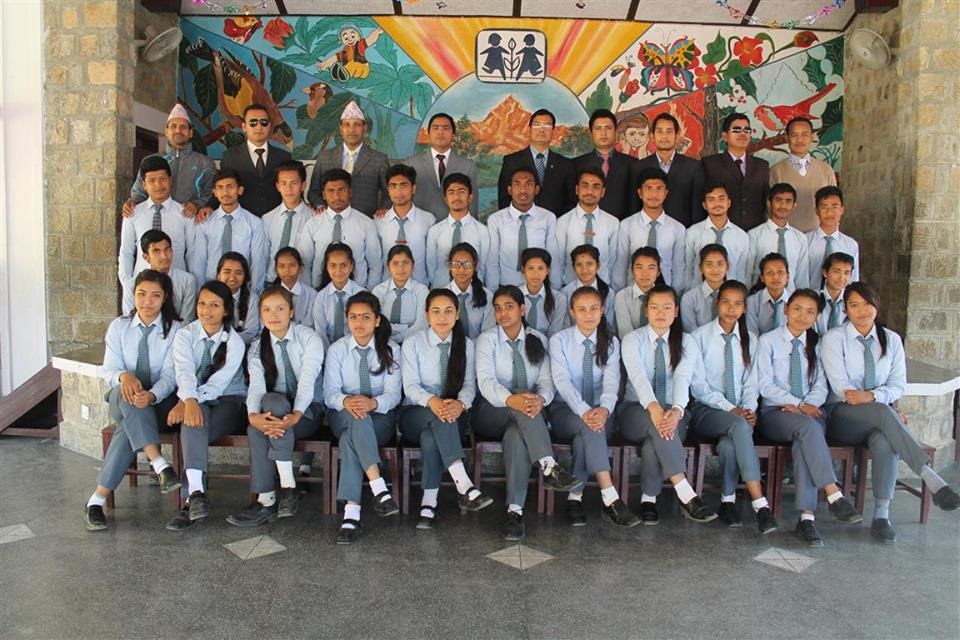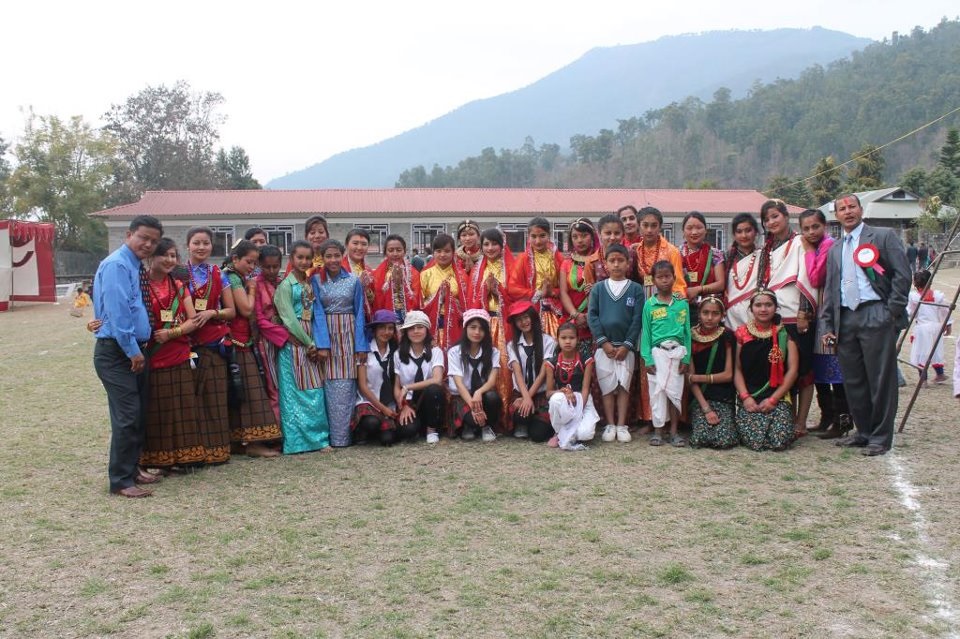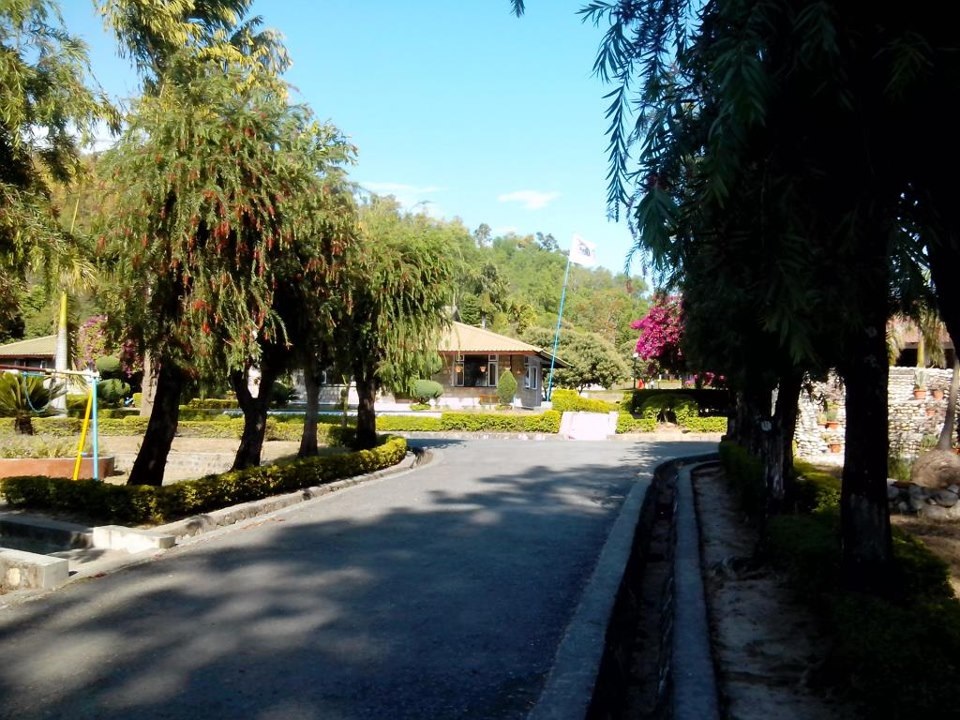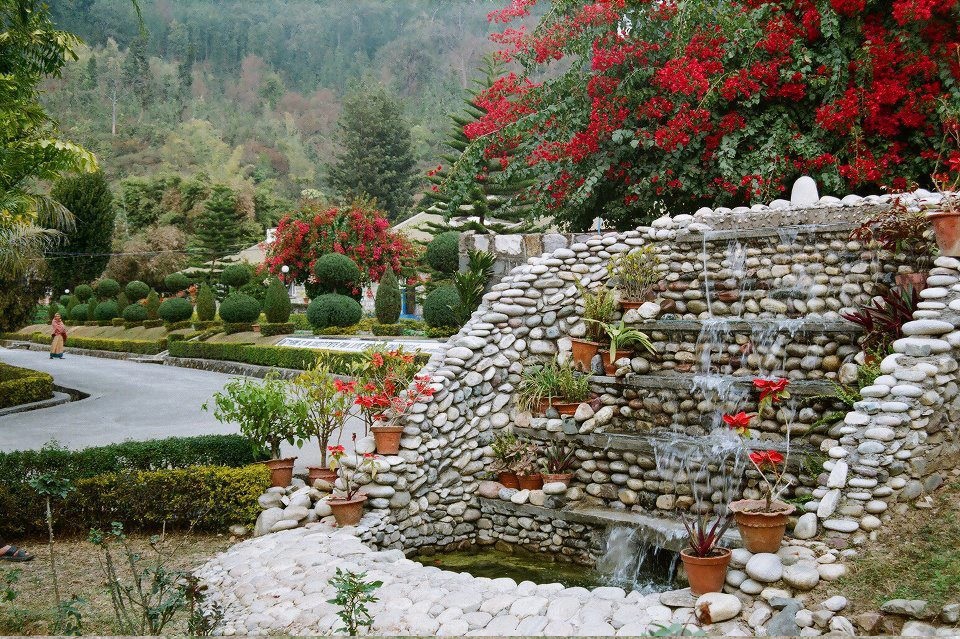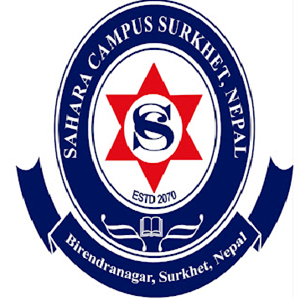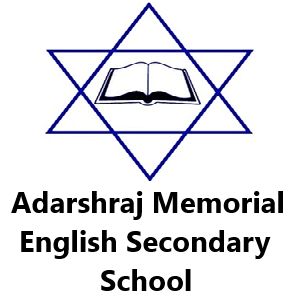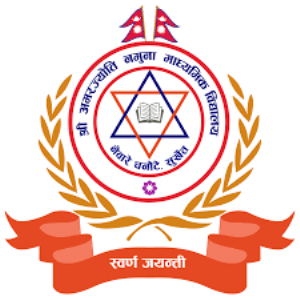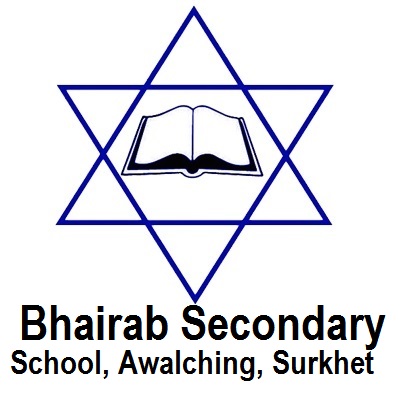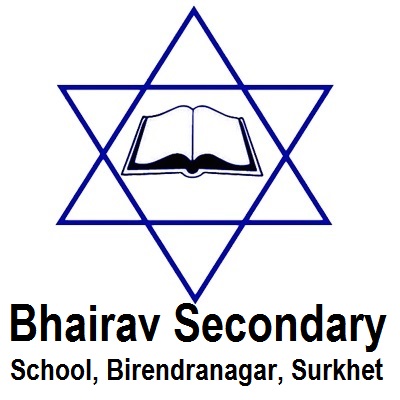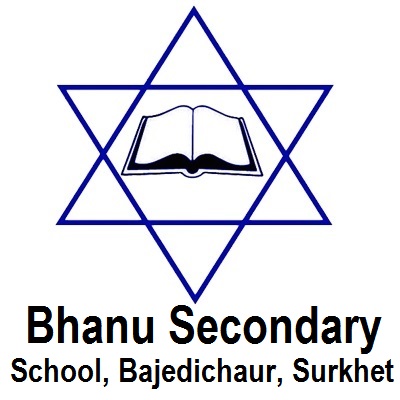Overview
SOS Hermann Gmeiner School Surkhet is a not-for-profit school in Birendranagar-4, Kalagaoun, Surkhet, run under SOS Kinderdorf International. Established in 1989 AD, the school serves children from SOS Children’s Village Surkhet and the local community.
Founded to meet the learning needs of children who lacked stable family care alongside the wider community, SOS Hermann Gmeiner School Surkhet grew from a primary setup (Nursery–Grade 5) to a full secondary school with Grade 11 and 12.
The school operates on a not-for-profit model and maintains an inclusive admission policy aligned with SOS Children’s Villages’ values and the UN Convention on the Rights of the Child (UN CRC).
Key chronological points:
-
1989 AD: School established; operational permission for primary levels (Nursery–Grade 5) on 20/04/2045 BS.
-
2048–2052 BS: Added Grades 6–10; first SLC batch appeared in 2053 BS with 26 students.
-
2060 BS: Affiliation from the then HSEB for Grade 11 (Management).
-
2076 BS: Science stream introduced in Grade 11–12.
-
2080 BS: Management stream phased out; senior secondary now focuses on Science.
The student body includes scholarship students from Family Strengthening Program (FSP), children from SOS Children’s Village, staff children, and fee-paying community students. The school’s approach centers on safe, caring learning, strong academic routines, and community engagement.
Quick Highlights
-
Location: Birendranagar-4, Kalagaoun, Surkhet, Nepal
-
Year of Establishment: 1989 AD
-
Governance: Under SOS Kinderdorf International; not-for-profit
-
Levels: Nursery to Grade 12
-
Current Senior Secondary Focus: Science (Grade XI/XII)
-
Medium of Instruction: English, aligned with Curriculum Development Centre (CDC)
-
Student Composition: Scholarship, SOS Village, staff, and fee-paying community students
-
Inclusive Policy: Admissions without discrimination by religion, caste, or origin
-
Key Facilities: Library, Maths Lab, Science Labs, Computer Lab (40 stations), Botanical Garden (research), multi-purpose playgrounds, cafeteria (150 seating), children’s park for early grades
-
Learning Model: Unit tests, chapter-wise quiz tests, project work, field-based learning, academic writing workshops, library work, parent–student meetings, home visits
-
Co-curricular: House activities, ECA, Scouts Troop, Taekwondo, annual sports meet, SOS Day, journalism and leadership training
-
Guidance & Support: Career counseling, leadership training, counseling sessions
-
Scholarships: Priority support for children in SOS programs and marginalized families
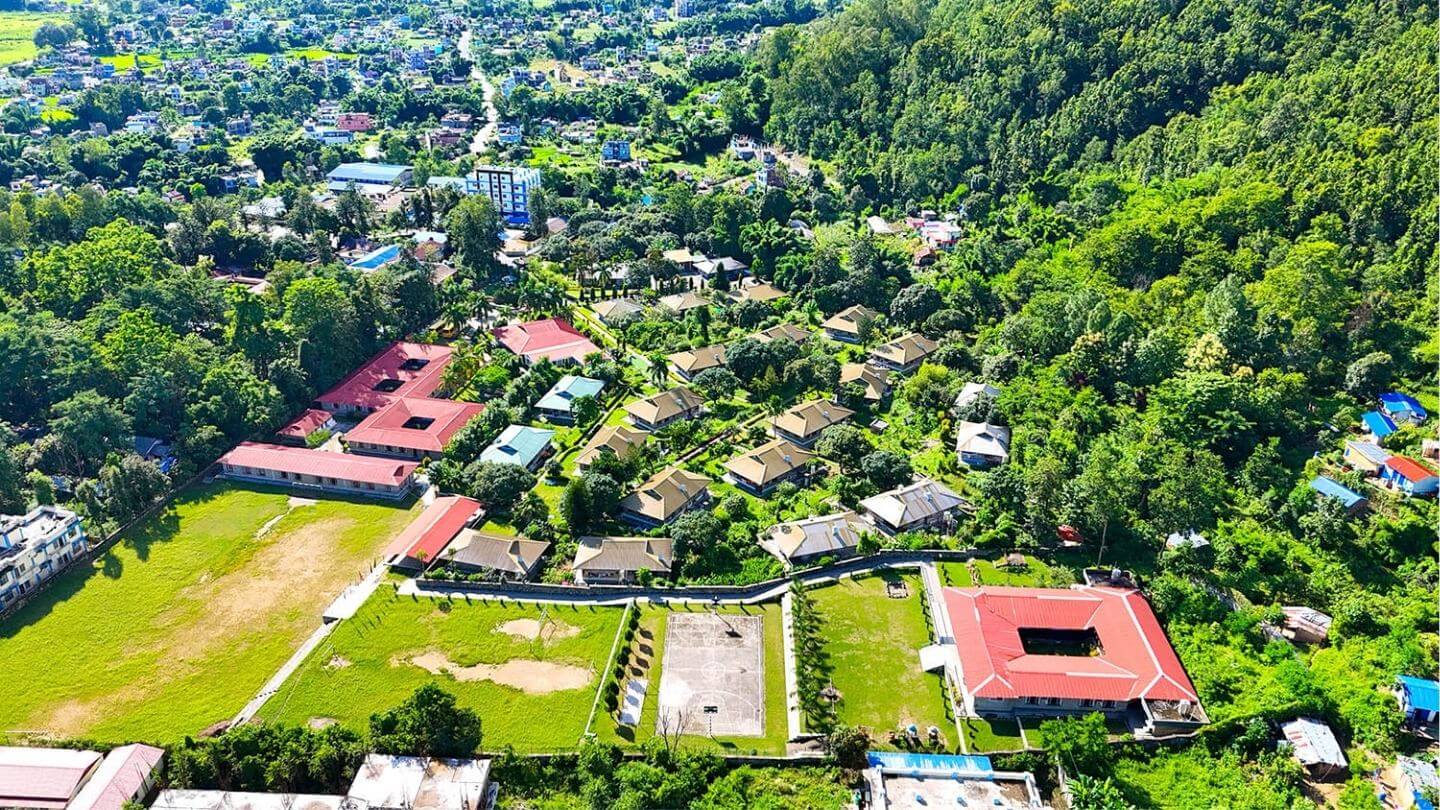
Vision, Mission, and Values
-
Vision: Every child belongs to a family and grows up with love, respect, and security.
-
Mission: Build families for children in need; empower children and young people to shape their own futures; support community development.
-
Values: Courage, commitment, trust, and accountability in all actions.
Governance and Safety
-
Upholds child protection policy of SOS International.
-
Aligns with UN CRC and promotes safe, caring learning environments.
Annual Academic Practices
-
Unit-wise and chapter-wise assessments
-
Project assignments tied to terminal exams (at least three per session)
-
Previews and reviews before and after major exams
-
Workshops to boost academic writing and study techniques
Leadership, Counseling, and Career Support
-
Leadership training for Grade 8–9 and the prefect council.
-
Regular career counseling for secondary students.
-
Motivational sessions and counseling planned across the year.
Alumni Engagement
-
Alumni association has supported infrastructure initiatives, including contributions during periods of financial stress.
-
Names recorded by the school include office-bearers and active members who have assisted in development projects.
Academic Programs Offered
School Levels and Streams
-
Primary and Lower Secondary (Nursery–Grade 8): Foundational literacy, numeracy, and integrated subjects per CDC curriculum, with age-appropriate projects and assessments.
-
Secondary (Grades 9–10): Core subjects per national standards with practical learning supports—labs, library work, and unit/quiz testing.
-
Senior Secondary (Grades 11–12 – Science):
-
Compulsory: Nepali, English, Mathematics
-
Options: Physics, Chemistry, Biology or Computer Science
-
Focus: Conceptual clarity, lab-based practicals, and writing skills (lab notebooks, reports, reviews).
-
Curriculum Orientation
The school follows the national curriculum (CDC) and incorporates local curriculum components where specified. English is the medium of instruction, and classes emphasize active participation, problem-solving, and project work to strengthen understanding across subjects.
Assessment Approach
-
Formative: Unit wise tests (oral and written), chapter-wise quiz tests, classwork, homework, and presentations.
-
Summative: Terminal exams with project assignments; preparation support through revisions and review sessions.
-
Academic Writing: Structured tasks in book reviews, journals, and reports to grow writing fluency and study discipline.
Admission Process
Eligibility and Entry Points
-
Nursery
-
Seats: 32
-
Age: Approximately 3.5–4.5 years at the time admissions open
-
Process: Interaction with the child in the presence of a parent/guardian
-
-
Grade Three
-
Seats: 38
-
Requirement: Completed Grade 2 from a registered academic institution
-
Selection: Entrance exam (Nepali, Science, English, Mathematics)
-
-
Grade Eleven (Science)
-
Seats: 40
-
Eligibility (as provided):
-
SEE (or equivalent) graduates with GPA ≥ 2.80 from Nepali-medium government schools
-
GPA ≥ 3.20 from private/English-medium schools
-
Minimum aggregate C+ in English, Science, Optional Mathematics, and combined GPA
-
-
Selection: Entrance exam (objective pattern) covering Mathematics, English, Science, and GK/IQ, followed by interview
-
Application Steps
-
Complete the official application form; pay the registration fee (registration does not assure admission).
-
Attend entrance tests or interactions as per grade level.
-
If shortlisted, appear for interview (where applicable).
-
Submit required documents within the given timeline.
Required Documents
-
Two recent passport-size photographs
-
Birth registration certificate (copy)
-
Grade sheet and character/transfer certificates from the previous school (not applicable for Nursery)
-
Copy of citizenship of parent(s)
Admission Policy
The school follows an inclusive policy in line with SOS Children’s Villages Nepal. Admissions are open to all eligible applicants, and entries to classes other than Nursery, Grade 3, and Grade 11 depend on seat availability. Notifications release through local media and official channels at the end of the academic session.
Teaching Faculty and Learning Methodology
Faculty Profile
The school is staffed by experienced teachers and academic administrators who track student progress and provide targeted support. Faculty members guide labs, projects, and field-based learning, monitor assessment cycles, and coordinate with parents through scheduled meetings and home visits.
Core Learning Practices
-
Unit and Chapter-Wise Testing: Regular checks to spot learning gaps early and reinforce timely corrections.
-
Project-Based Tasks: At least three project assignments in an academic session tied to terminal examinations.
-
Field Learning: Curriculum-based outings and researched field trips, planned class-wise for real-world exposure.
-
Academic Writing Workshops: Focused sessions on writing techniques, lab reporting, and review formats.
-
Library Work: Book reviews, journals, and reflective tasks build reading habits and independent study skills.
-
Parent–Student Meetings & Home Visits: Shared responsibility for learning; teachers connect classroom progress with home routines.
Student Support and Guidance
-
Counseling Sessions: Periodic counseling to address study habits, motivation, wellbeing, and exam readiness.
-
Career Guidance (Secondary Level): At least two sessions per year; professionals from varied fields share pathways and options after Grade 10 and 12.
-
Leadership Training: Annual programs for Grade 8–9 students and prefect council members to build communication and team skills.
Infrastructure and Learning Facilities
Library and Reading Culture
-
Open-shelf library with a wide range of books, references, journals, and periodicals.
-
Mini-libraries in each class to keep reading materials within easy reach.
-
Weekly issue system and structured reading tasks to nurture independent study and literary appreciation.
Science Laboratories
-
Separate labs for Physics, Chemistry, and Biology.
-
Practical sessions align with classwork, with teachers using real-life examples to make experiments relatable.
-
Emphasis on safety, accurate recording, and lab notebook maintenance.
Maths Lab
-
A dedicated Maths Lab—an uncommon resource in Karnali Province—offers hands-on exposure to mathematical ideas.
-
Models, tools, and activities turn abstract concepts into concrete tasks that support critical thinking.
Computer (ICT) Lab
-
Capacity for about 40 students at a time.
-
Access to current software and learning tools to strengthen digital literacy and research skills.
Botanical Garden (Research Lab)
-
Enclosed garden with multiple plant species for Biology practicals and observation work.
-
A space for guided inquiry, data collection, and scientific observation.
Sports and Play Areas
-
Multi-purpose playgrounds for different age groups and sports codes.
-
Scheduled periods for sports and ECA during school time.
-
Community engagement: grounds have hosted activities for local players, including participants from Mid-Western University and within Karnali Province.
Cafeteria
-
Model canteen with about 150 seats.
-
Focus on hygiene and nutrition; child-friendly seating and layout.
Children’s Park (Early Grades)
-
Adjacent to the junior academic block (Kindergarten to Grade 3).
-
Age-appropriate play structures aligned with early years learning.
Student Life and Campus Experience
A typical week balances academic classes, formative assessments, project hours, ECA, and guided study. Students learn to manage time, work in teams, and present ideas. Regular feedback from teachers and class coordinators helps set realistic study goals.
Highlights of daily life:
-
Short, focused class periods with clear learning objectives
-
Scheduled lab and library sessions
-
Reading circles and class presentations
-
Sports/ECA slots to keep students active and social
-
Access to counseling and guidance when needed
-
Parent touchpoints (meetings or home visits) during terms
Extracurricular Activities (ECA)
House Activities and Annual Meets
-
Weekly, monthly, and annual events across debate, oratory, quiz, scrabble, essay, calligraphy, arts, kite flying, and more.
-
Annual sports meet brings athletics and games onto a single platform for healthy competition.
SOS Day
-
Commemoration of the birth anniversary of Prof. Dr. Hermann Gmeiner, founder of SOS Children’s Villages.
-
Events include an internal and external street marathon and a blood donation program.
Journalism and Leadership Training
-
Training for Grade 8–9 to build reporting, writing, and leadership skills ahead of prefect council responsibilities.
Scouts Troop
-
SOS Scouts Troop introduced in 2071 BS; principal serves as patron.
-
Scout teachers: Mr. Nawaraj Sapkota, Mr. Gangaram Acharya, and Mr. Tilak Prasad Gautam.
-
Current troop: 36 members (20 boys, 16 girls).
-
Activities follow district schedules and align with school events.
Taekwondo
-
Taekwondo group mentored by librarian/sports mentor Mr. Gangaram Acharya.
-
Students participate in inter-school and district-level competitions.
Community and Environment
-
Sanitation programs linked to World Environment Day and regular campus cleanliness drives.
-
Field learning connects classroom topics with local contexts.
Scholarships and Financial Support
The school’s not-for-profit status and mission shape its support schemes. Priority scholarships are extended to children connected to SOS programs—especially the Family Strengthening Program—and other vulnerable or marginalized families. This policy supports a diverse student body and reduces barriers to access.
Support practices:
-
Inclusive admissions aligned with SOS Children’s Villages Nepal
-
Need-based assistance within available resources
-
Counseling and guidance for families on timelines and documentation
-
Community outreach to inform eligible households
Prospective families should contact the school office for current scholarship procedures and timelines.
Achievements and Institutional Milestones
-
1989 AD: Establishment; primary grades begin under SOS National Executive Committee support.
-
2048–2052 BS: Expansion from Grade 6 to Grade 10 with successive operational permissions.
-
2053 BS: First SLC batch with 26 students.
-
2060 BS: HSEB affiliation; launch of Grade 11 (Management) with 40 students.
-
2071 BS: Launch of the SOS Scouts Troop.
-
2076 BS: Science stream commences in Grade 11–12.
-
2080 BS: Management stream phased out; senior secondary focuses on Science.
-
Facilities Expansion: Computer lab (40 stations), Maths Lab, research-oriented botanical garden, upgraded science labs, cafeteria seating for 150, and a children’s park near the junior block.
-
Community Engagement: Sports grounds shared with local players; events involving Mid-Western University participants and district-level bodies.
-
Academic Culture: Regular project cycles, academic writing workshops, and field-based study integrated into assessment.
Why Choose SOS Surkhet?
-
Child-Centered Mission: Operated under SOS Kinderdorf International with a firm commitment to child rights, protection, and safe learning.
-
Inclusive and Not-for-Profit: Admissions are non-discriminatory; scholarships prioritize children linked to SOS programs and families in need.
-
Steady Academic Growth: Track record of systematic expansion since 1989, now delivering senior secondary Science with strong lab support.
-
Structured Learning Routine: Unit tests, chapter quizzes, projects, and writing tasks keep learning active and measurable.
-
Strong Practical Exposure: Science labs, Maths Lab, and botanical garden make practical work a regular part of study.
-
Reading Culture: Open-shelf library and class-level mini-libraries cultivate reading habits and self-study.
-
Balanced Campus Life: Sports, Scouts, Taekwondo, and cultural events shape character, teamwork, and leadership.
-
Guidance and Counseling: Career counseling, leadership training, and term-wise counseling sessions help students plan ahead and stay motivated.
-
Family–School Partnership: Parent–student meetings and home visits create continuity between home routines and classroom goals.
-
Community Linkages: Facilities and programs connect the school with the local community, opening avenues for real-world exposure.
Conclusion
SOS Hermann Gmeiner School Surkhet stands as a stable learning community grounded in care, safety, and steady academic routines. Since 1989, it has expanded thoughtfully—from primary to senior secondary—while holding close to its mission: serving children through inclusive policies, structured teaching, and supportive guidance. With Science at Grades 11–12, strong labs, a reading-focused culture, and active ECA, the school offers students a clear path from foundational learning to higher studies.
Families and students seeking a reliable secondary option in Surkhet will find a school that values each child’s wellbeing and growth. Educators, planners, and researchers will find verifiable information about its history, programs, and practices. For details on admissions, scholarships, or term-wise schedules, contact the school office during working hours.


